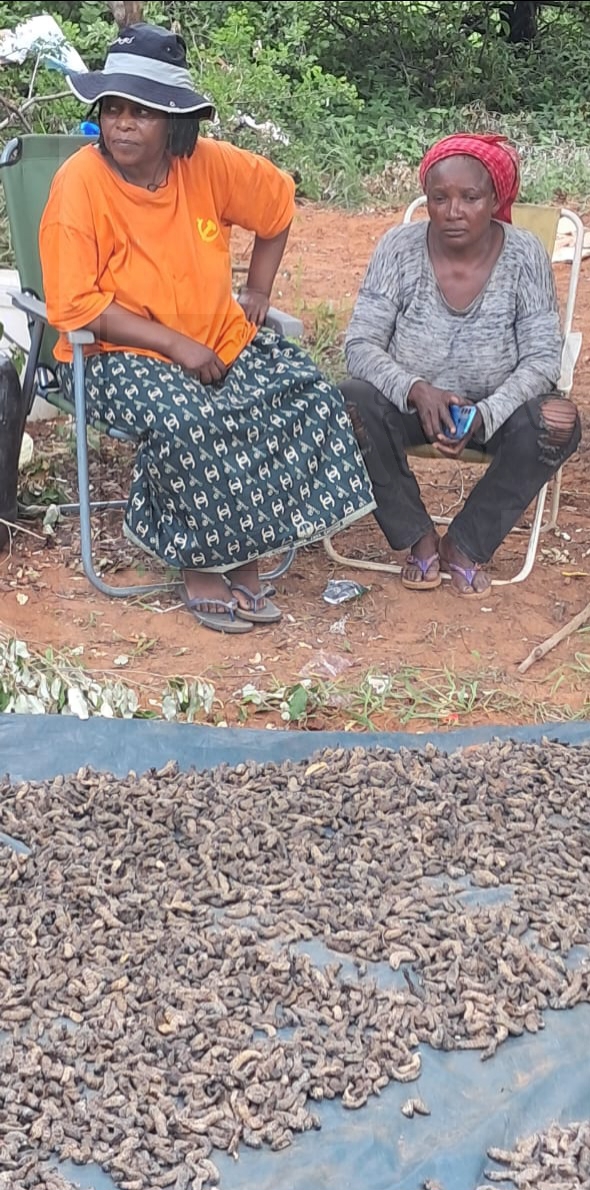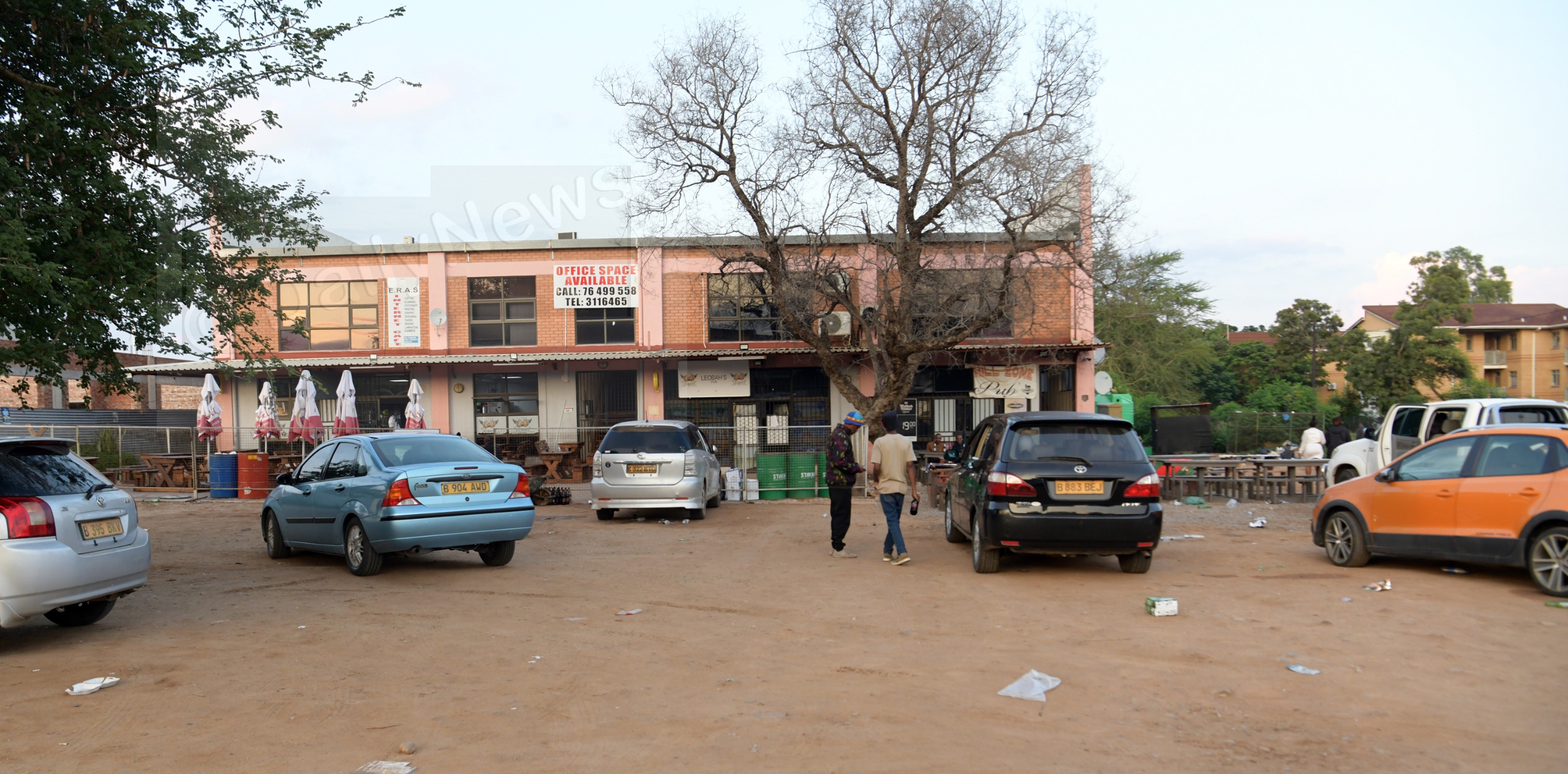Smart farming beneficial
13 May 2024
Achieving success in the farming industry requires more than just raising animals or growing crops.
It demands a strategic approach, dedication, and a keen understanding of the intricacies involved.
The sentiments were expressed by the Research and Development Executive Director at the Agricultural Research and Development Institute (NARDI), Dr Charity Kruger during the Tshephe Farmer’s Association field day at Mokame cattlepost on Saturday.
Dr Kruger called for the revolutionalising of the farming industry, arguing that agriculture remained the mainstay of everyday lives.
She said programmes such as Temo Letlotlo, Chema Chema and Thuo Letlotlo created a platform for farmers to excel in production systems.
The theme of the event was Mindset change: A way towards embracing technologies for a profitable cattle enterprise. Reflecting on the theme, she said it promoted a positive attitude to change so as to embrace technology in their enterprises.
“You are adopting a new mindset that sees challenges as opportunities for innovation and understanding the value of technology driven enterprise.
This requires transformation in how you do business by employing the right combination of land, feed, veterinary care, technology and management to produce healthy cattle ready for the market,” she stated.
Dr Kruger underscored that technology was becoming increasingly fundamental to modern farming practices, noting that its use comes with the promise of improved efficiency, lower costs, and better animal welfare.
Similarly, she stated that Vision 2036 and the Transformation Agenda advocated for a knowledge-based economy and keeping pace with global and regional development underpinnings such as the UN Sustainable Development Goals and the African Union Agenda 2063 which talks about The Africa we want.
She said government had embarked on embracing technologies like Assisted Reproductive Technologies such as artificial insemination and embryo transfer to try and increase the national herd, which had been slowly declining over the years.
Dr Kruger, therefore, called upon the Tshephe association to take advantage of these interventions and treat cattle enterprise as a business.
She said NARDI was prepared to partner with farmers in transferring agricultural technologies to improve livestock productivity. She called on farmers to adopt the local breed Mosi, which is a beef composite breed that was developed by one of the local legacy institutions in 1982.
She explained that Mosi was developed as an alternative breed, which grows fast and could achieve carcass weights required by both the local and export markets while at the same time retaining the hardiness required to survive the prevailing harsh environmental conditions.
She said NARDI has developed technologies that could assist the farming community to improve productivity and manage livestock challenges.
“We have technologies for drought mitigation such as supplementary feeding, bush encroachment management strategies and vaccination programmes for livestock,” she noted.
In addition, she said, NARDI was committed to collaborate with government initiatives aimed at supporting the livestock industry, such as Thuo Letlotlo, an inclusive livestock support programme that covers all livestock sub-sectors.
She said NARDI was already a step ahead in that it facilitated the formations of the Mosi and Tswana Breeds Associations.
Furthermore, she said NARDI was collaborating with Brazil for Botswana to conduct adaptive research on the Girolando breed, which currently provides about 80 per cent of Brazil’s milk.
She said the breed would be propagated in Botswana through imported embryos from Brazil. She noted that Brazil was among the top 10 milk producing countries worldwide and had a rapidly growing dairy industry that had transformed the country from a net importer of dairy products to a net exporter.
As the Letlhakeng District had been hard hit by the outbreak of heart water disease, she advised the farming community to control tick infestation through dipping and treat affected animals using available and prescribed oxy-tetracycline.
She expressed gratitude to President Dr Mokgweetsi Masisi for promoting the establishment and formation of associations to act as a mouthpiece for farming communities, saying that, “indeed the livestock sector benefits from a strong political support in Botswana.”
She said farmers associations if coordinated, supported and owned by the general farming communities, could yield results.
An official from the Botswana Meat Commission (BMC), Mr Kenneth Makubati challenged farmers to register their holdings with the Department of Veterinary Services in order to supply the lucrative European Union market.
Mr Makubati regretted that poor record keeping was common among farmers.
He told farmers that BMC was working around the clock to resolve payment delays. He said fragmentation of farmers associations disenfranchised them from accessing support from entities like BMC, saying it would not be prudent for BMC to support multiple associations from one region.
The Member of Parliament for Takatokwane constituency, Mr Tshoganetso Leuwe also shared sentiments that the establishment of multiple farmers associations in a single region was a cause for concern and should be addressed. Mr Leuwe called on farmers to treat farming as business.
He also called on farmers to embrace the Mosi breed saying it was tailor-made to prevail in the conditions of this country.
In his welcome remarks, host farmer, Mr David Malejane urged farmers to embrace change to improve yields amid challenges threatening the farming industry.
Kgosi Kgari III of Bakwena graced the event. ENDS
Source : BOPA
Author : By Mothusi Galekhutle
Location : MOKAME CATTLEPOST
Event : Interview
Date : 13 May 2024







